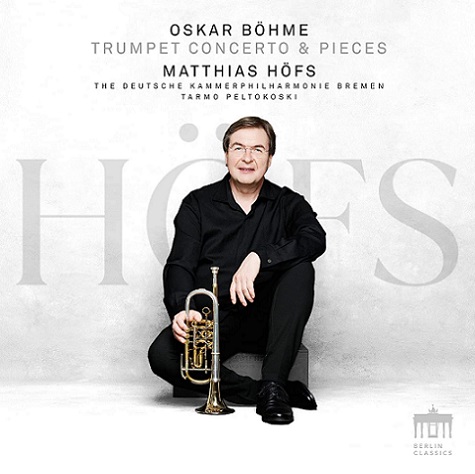

For much of his career Oskar Bohme wore the inconspicuous cloak of the integrated immigrant musician. It could not though hide an identity that was to seal his tragic fate.
Born near Dresden in 1878, he studied trumpet and composition in Hamburg before following in the tracks of other German musicians in moving to Russia in 1898. There he married, took citizenship, and eventually became cornetist at the famous Marinsky Theatre in St Petersburg, as well as becoming a respected composer and teacher.
That all ended with the Bolshevik Revolution.
His origins condemned him: Arrested several times on increasingly spurious charges, he lost his job, his home, and finally, his life – executed by Stalin’s NKVD in October 1938 for “Anti-Soviet activities”. His last years had seen him eke out a living in Orenburg on the Kazakh border playing in local cinemas and teaching students, his death an oblique entry in an official ledger.
Rescued
Thanks to assiduous research, first his music, and later his life, was rescued from obscurity.
Bohme brought with him to Russia an informed understanding of late Romantic harmony and counterpoint style, as well as an acute appreciation of the emerging qualities of the cornet as a solo instrument that could combine virtuosity with lyricism (especially in the minor key).
In Matthias Hofs that artistry is stunningly brought to life; the opening ‘Trumpet Concerto in F Minor’ an elegant tour de force (expertly orchestrated by the soloist) of controlled precision and graceful articulation – the cadenza delivered with nonchalant brilliance.
In Matthias Hofs that artistry is stunningly brought to life; the opening ‘Trumpet Concerto in F Minor’ an elegant tour de force (expertly orchestrated by the soloist) of controlled precision and graceful articulation – the cadenza delivered with nonchalant brilliance.
It hallmarks his mastery of works of scope and versatility, from salon song to academic study and showcase solo; each richly scored and crafted in structure (accompanied with subtle appreciation).
Absolute
Hofs’ control is absolute - from the long lines of beautifully shaped phrasing to the waspish turns of urgent pace and cultured explorations of range and tonality.
There is the restrained sorrowfulness of ‘Entsagung’ and the growing passion of ’Liebeslied’, that is balanced by the shifts between minor keyed melody and major infused fervour of ‘Danse Russe’ and the tarantella dance steps of ‘La Napolitaine’. ‘Soiree de St. Petersburg’ (with delightful harp accompaniment) is a lilting barcarole of night-time romance that floats on an air of delicate certainty.
Hofs’ control is absolute - from the long lines of beautifully shaped phrasing to the waspish turns of urgent pace and cultured explorations of range and tonality.
A quite superb release closes with ’Sextet in E-flat Minor for Brass Ensemble’ - a glorious display of contained polyphonic cross over and balance.
Scored for cornet, two trumpets, horn, trombone and tuba it is the art of small ensemble orchestration played with delightful understanding – from the pensive to the thrillingly spirited.
Iwan Fox
To purchase:
Track list:
1. Trumpet Concerto in F Minor (Op.18)
i. Allegro Moderato
ii. Adagio Religioso - Allegretto
iii. Rondo: Allegro Scherzando
4. Entsagung (Op. 19)
5. Soirèe De St. Petersbourg (Op. 23)
6. Danse Russe (Op. 32)
7. Liebeslied (Op. 22)
8. La Napolitaine – Tarantelle (Op. 25)
9. Sextet in E-Flat Minor for Brass Ensemble (Op. 30)
i. Adagio Ma Non Tanto - Allegro Molto
ii. Scherzo. Allegro Vivace
iii. Rondo: Allegro Scherzando
iv. Allegro Con Spirito









